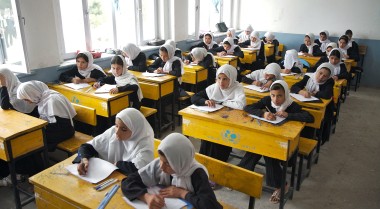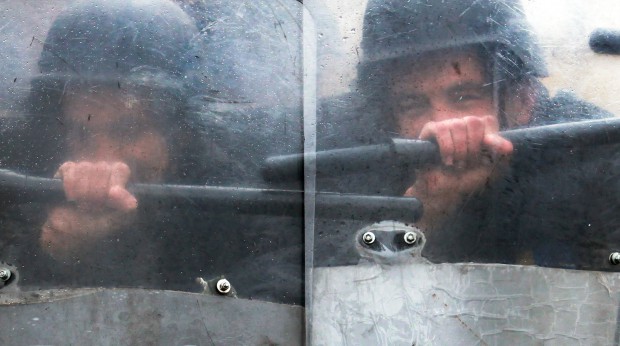
Peace Campaign 'Ville Morte' Democratic Republic of Congo
Responding to the call made by civil society organisations, including our member Héritiers de la Justice and opposition political parties of South Kivu province, the inhabitants of the city of Bukavu took part in a public campaign on November 1st. They demanded of the President of the Republic, the Government and the National Independent Electoral Commission to respect the constitution and to hold the presidential elections in accordance with the Agreement of 31 December 2016 with a view to a peaceful alternation to power. As part of this public campaign, culminating in a "ville morte" action the vast majority of people stayed at home as a form of peaceful demonstration. The demonstration and the key demands activists were making was covered by various local media and organisers distributed papers explaining their demands in different districts. The demonstration was widely followed, as the streets and roads of Bukavu were almost deserted. With this action, Héritiers de la Justice aimed at calling on the Congolese government to respect the democratic demands of citizens expressed in a peaceful manner. Héritiers de la Justice and the other partners in this demonstration highlighted the risk of radicalisation and confrontation if the government does not listen to the democratic demands of its citizens and follow the constitution of the country.
Heritiers de la Justice also undertook research on the motivations and drivers behind the kidnapping of individuals in the Ruzizi lowlands and highlighted the lack of sustainable delivery on security and governance demands and commitments by the government having lead to greater insecurity. A focus on incidental raids on armed groups by the military has pushed those groups to resort to kidnapping as a form of income generation, preventing the local population from travelling or being able to look after their fields and animals. Heritiers developed a series of recommendations that it is taking to the government of the DRC, Monusco, local civil society and the local population.

